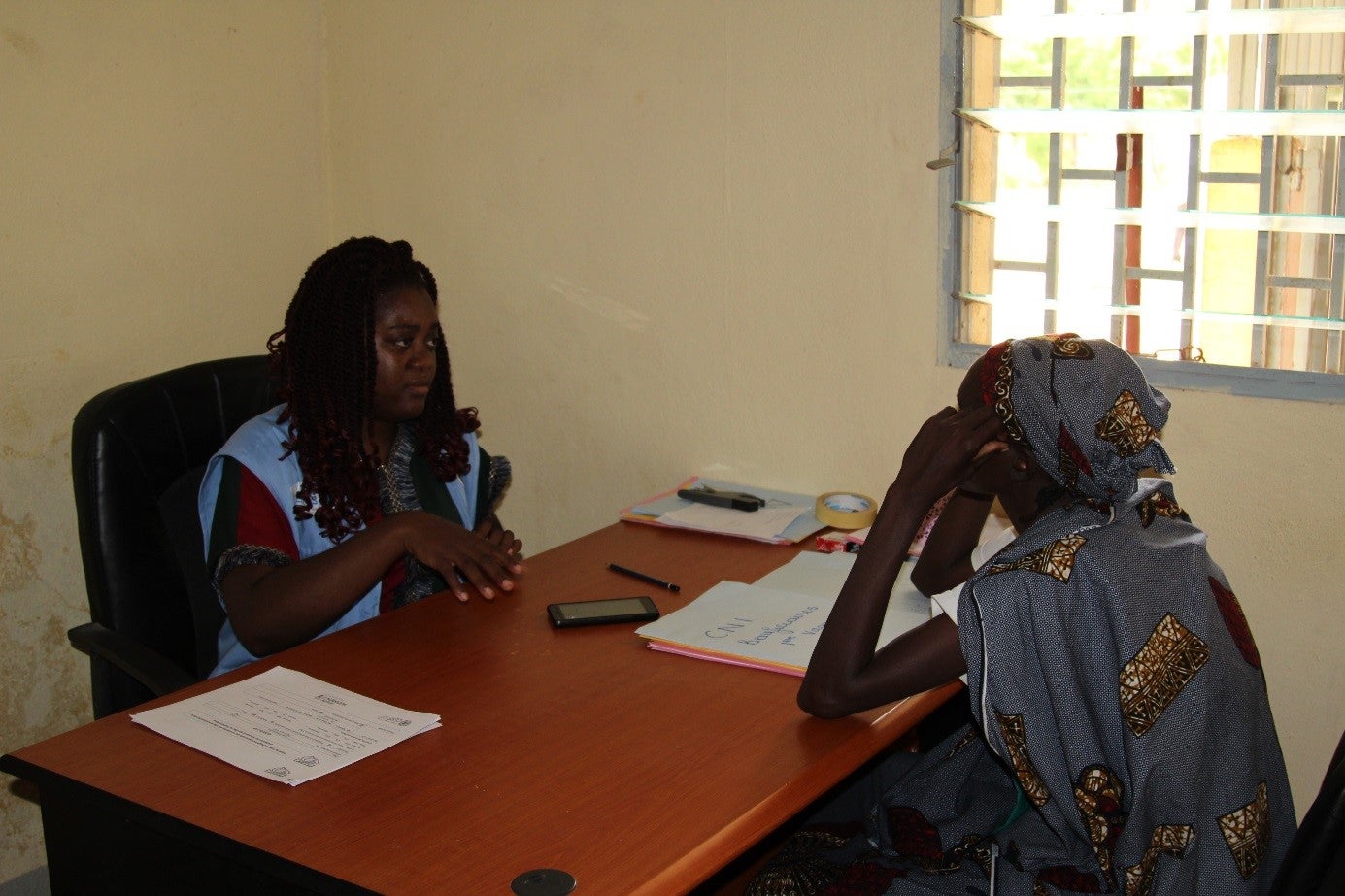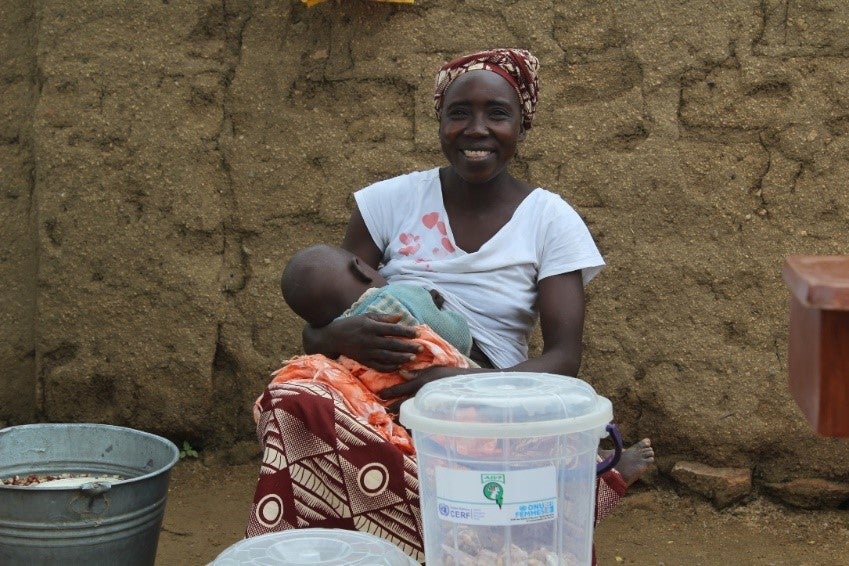UN Women facilitating reintegration of GBV survivors in the Far North Region of Cameroon
Date:
Since the launch of the Central Emergency Relief Fund (CERF) program in April 2018, UN Women and its partners has provided multi-facet support to over 400 survivors of Gender-Based Violence (GBV) including women fleeing Boko Haram Insurgency in the Far North Region of Cameroon.

ALVF social worker, Titigue Mispaline, attending to a GBV survivor at the Women’s Empowerment Center in Mora. Photo: UN Women/ Teclaire Same
When GBV survivors come forward, they first receive psychosocial support and counselling. The survivors are then referred to UNFPA for medical consultation and exams. The social worker also makes a complaint to the gendarmerie for preliminary investigations. Based on the report of the investigation a judicial complaint is made.
According to the ALVF social workers they attempt to resolve all cases of intimate partner and family violence amicably through family mediation, sensitization and counselling of the couple and extended family members as a way of promoting social cohesion within the family and raising awareness of the rights of women and effects of violence. “Men are expected to be gender champions because they are the ones to effect the change,” says Gring Marcel, one of the ALVF social worker noted.
One of the GBV survivors is a 40-year-old mother of 7 who was abandoned by her husband who constantly raped her in the presence of her young daughters. She was brought to ALVF by another survivor. She was assigned a psychologist who provided counselling to her and her daughters who were already traumatized by the violence around them. “My husband was also summoned for counselling. He has changed, he now sends food stuff to us and stopped coming back to rape me. Men in our communities now treat us as outcasts and traitors for denouncing our spouses. But they are afraid to hurt us because we now know our rights and can make a judicial complaint against them.”

A GBV survivor in Mokolo and a beneficiary of livelihood support, that enabled her to start her own small business. Photo: UN Women/ Teclaire Same
Cases of forceful seizures or evictions from property by spouse or family members are referred to the traditional authorities to mediate with family members and support the restoration of their assets. Cases of sexual assault and rape are reported to the local police and the court.
A 33-year-old mother of 5 children who was chased away from her home by her husband shared her encounter, “After the sensitization campaign that ALVF organized in our local market, I came to the women empowerment center to inform the ALVF social worker of my problems. After receiving counselling, my case was referred to the Lamido of Mokolo and a summon was sent to my husband to oblige him to start catering for his children. The man has engaged to provide support for the children’s upkeep and education beginning this school year.” “I also participated in a training on how to setup and manage my own business. I have now started my small business selling beignet with the economic kit provided by UN Women and ALVF,” she added.
Unfortunately, most of the cases of sexual assault are often not raised and those reported are rarely punished because they are committed by soldiers and important men in the community. Many women are afraid to denounce sexual assault or file a judicial complaint for rape and sexual assault because of fear of persecution from the society, death threats and abuse of authority by the military officers. No punitive sanctions are taken against soldiers by the military commanders and the victims suffer humiliation, stigmatization and isolation from society when they report violence and assault. As a result, many cases are never reported.